Introducing the Habring² Felix – Hand-Made in the Austrian Alps (Specs and Price)
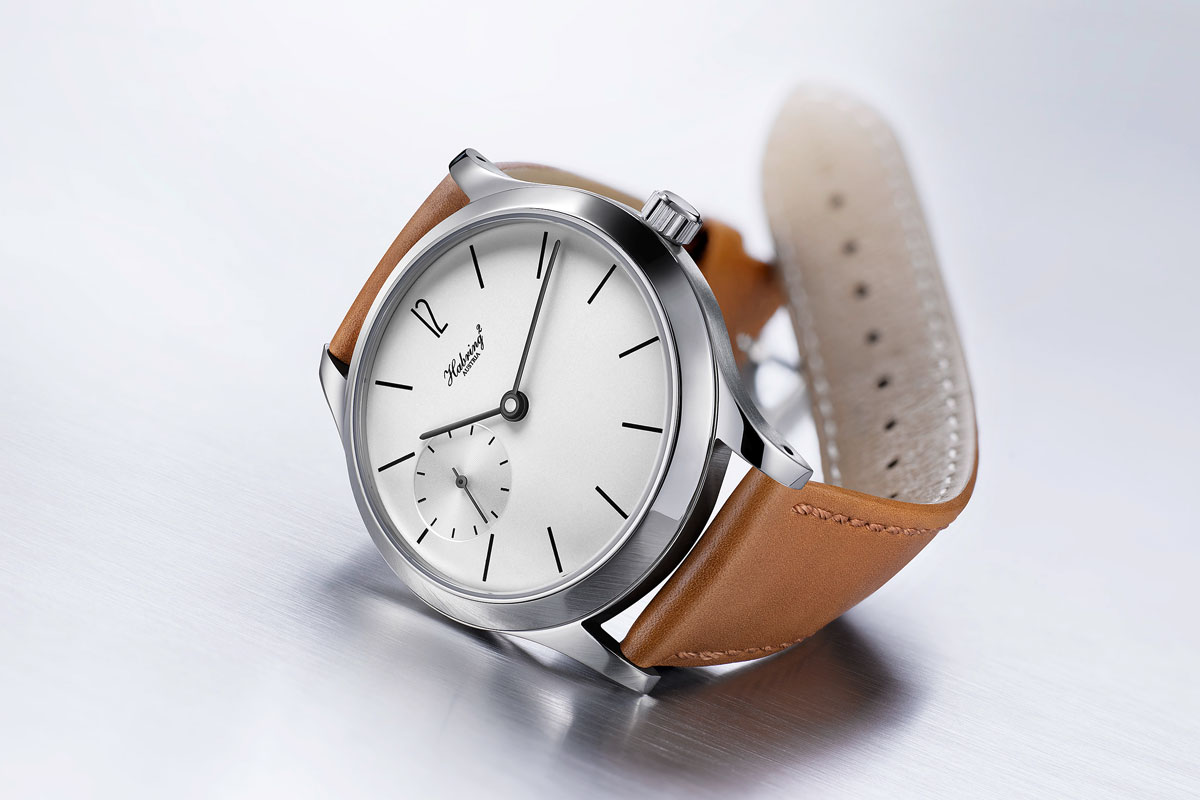
Introducing the Habring² Felix, featuring Habring²’s own proprietary movement that is hand-finished and hand-assembled in their Austrian atelier. More-over, it is entirely developed in Austria! Maria and Richard Habring launch Felix to celebrate their atelier’s 10th anniversary and immediately announce what’s more to come from these two great people and this extremely interesting young independent watch brand. Let’s have a closer look at Felix’ specifications and price!
For the last 10 years Habring² have been making their own watches, usually based on the Valjoux/ETA 7750 (and 7760) base. Now with Felix they introduce the first in Austria developed, and largely in Austria manufactured and assembled, movement called the calibre A11. “A” for “Austria” and “11” for the start of its development in “2011”. Felix will be powered by calibre A11B, and the “B” stands for Basis. In 2015 we will also see calibre A11D (time & date), calibre A11S (jumping second) and calibre A11SD (jumping second with date). It’s very impressive to see what a small independent watch manufacture (yes, Habring² can now be called manufacture!) can realise and they’ve done this with mainly Austrian partners and suppliers.
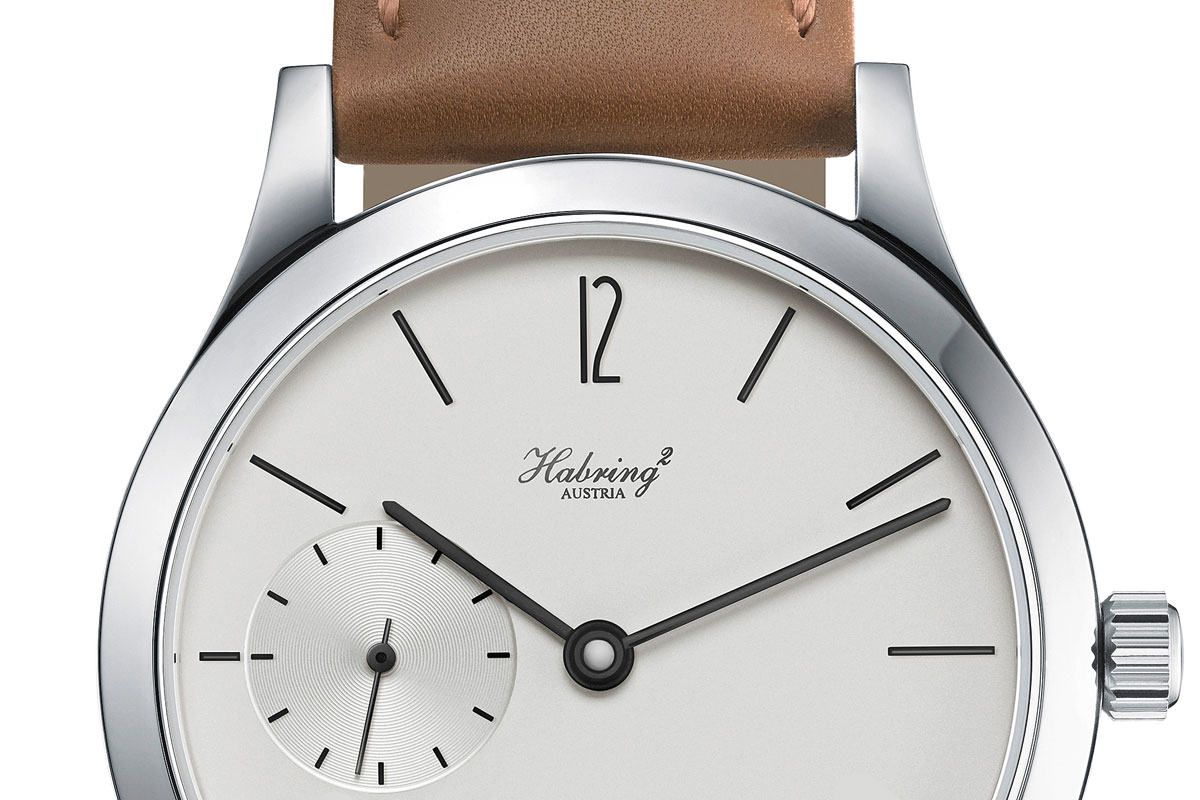
Now I’ve just read all specifications and I’m writing my article, I’m actually slightly blown away by the news. Habring² was always one of the entry-level independent watchmakers, offering A) great quality, B) interesting products (remember the Jumping Seconds, the Foudroyante, the Chrono with central minute counter and the recently introduced Doppelchrono), and C) value for your money! The impressive factor (or I should say, ONE of the impressive factors) is that Felix is priced at just € 4,450 Euros.
The Habring² manufacture movement A11B is the basis for more calibres to come and this basis measures 30mm in diameter and 4.2mm in height. This time-only movement (central hours and minutes, and an off-centre small second hand) is a manually wound movement that, when fully wound, offers 48 hours of autonomy. The escapement vibrates at 28.800 vph (or 4Hz) and can be adjusted with a tangential fine adjustment screw.
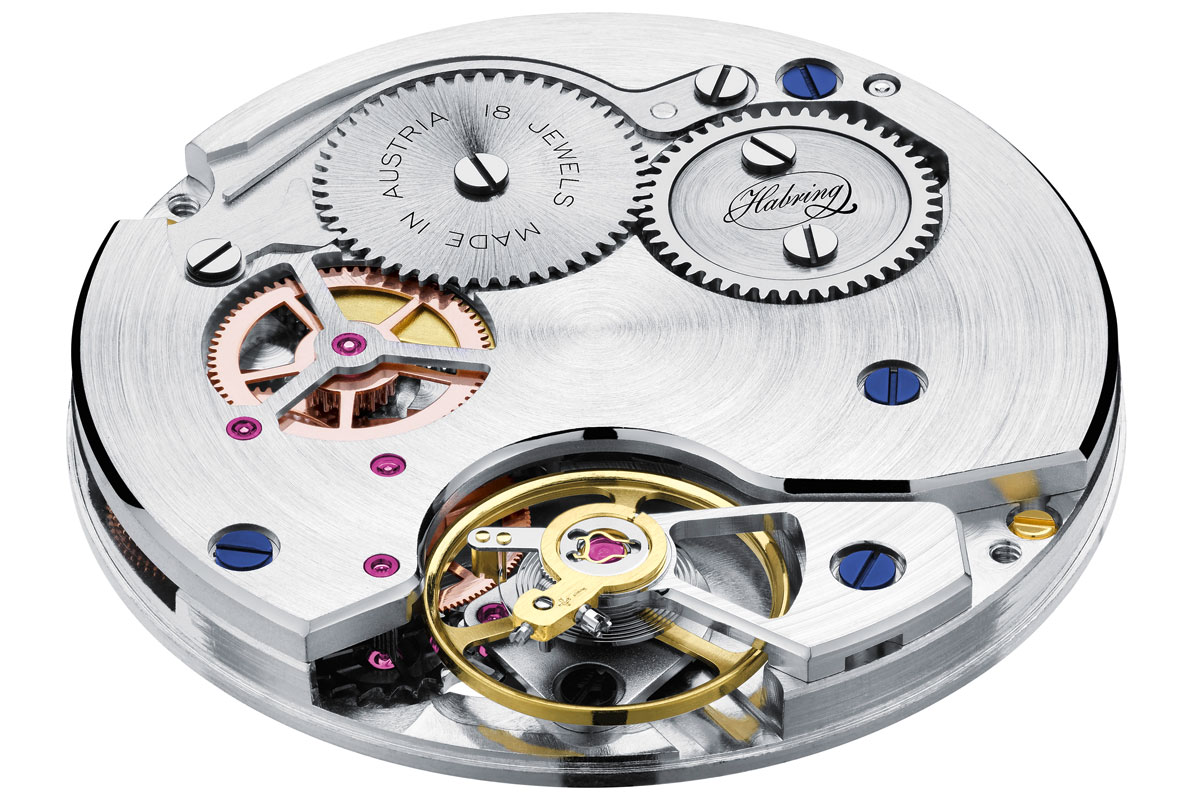
Another impressive factor is that many parts of Habring²’s new movement are manufactured, in the very meaning of the word. Manu-factured, meaning made by hand. The wheels and pinions in calibre A11 are joined by a staking tool. Done by hand. Jewels are set by hand. The pallet are set in the anchor, and adjusted, by hand. The length of the balance spring is cut by hand, and the timing of the proprietary balance wheel is also adjusted by hand. No industrial or automated production processes here, this is a manufacture in the true meaning of the word.
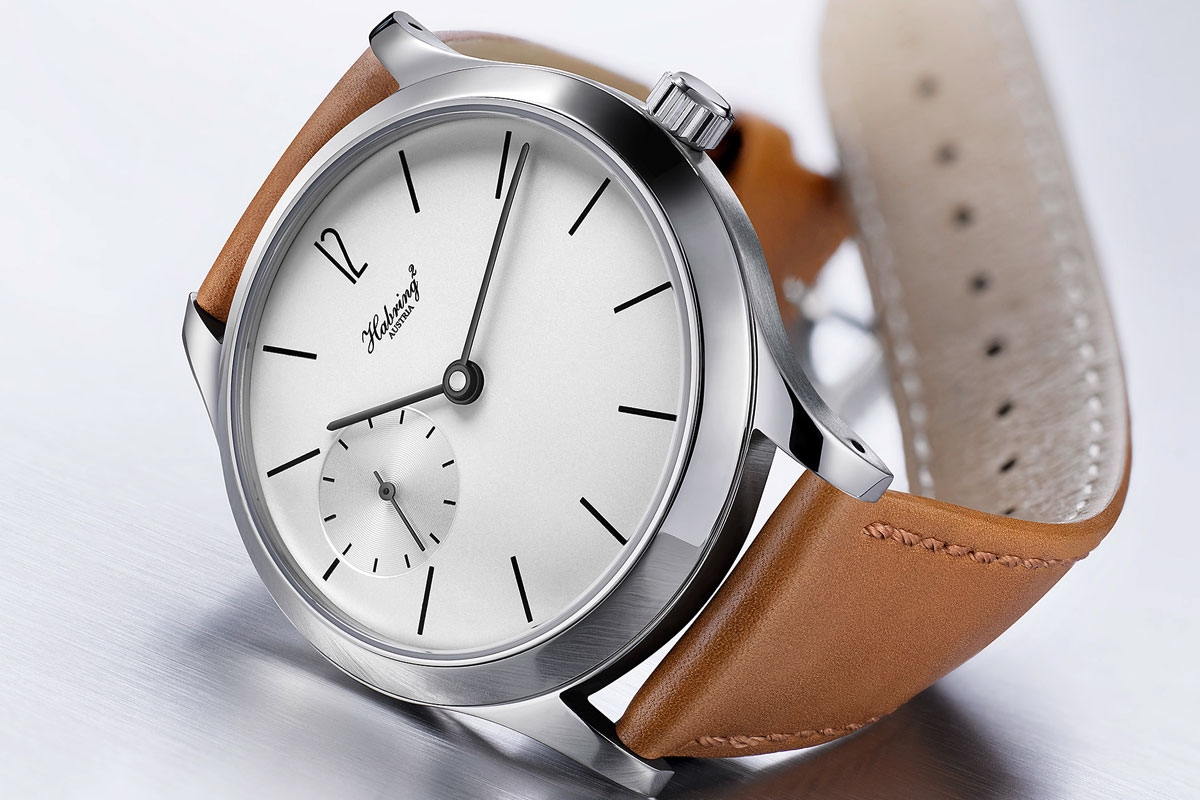
Felix is a classic dress watch. both in looks and in dimensions. With a diameter of 38.5 mm and a very pleasant case height of only about 7 mm Felix wears very comfortable on the wrist. The stainless steel used to make Felix’ sleek case originates from the Austrian Alps.The raw material stems from the Böhler smeltery in Kapfenberg, in the mountains of Carinthia. The fine-grained, silver-white dial features a discreet ‘minimalistic’ print, that is reduced to the bare minimum and the hands are black-oxidised. Only two dial designs are available: with either an Arabian or Roman “12” and, on request, without the characteristic second at 9 o’clock.
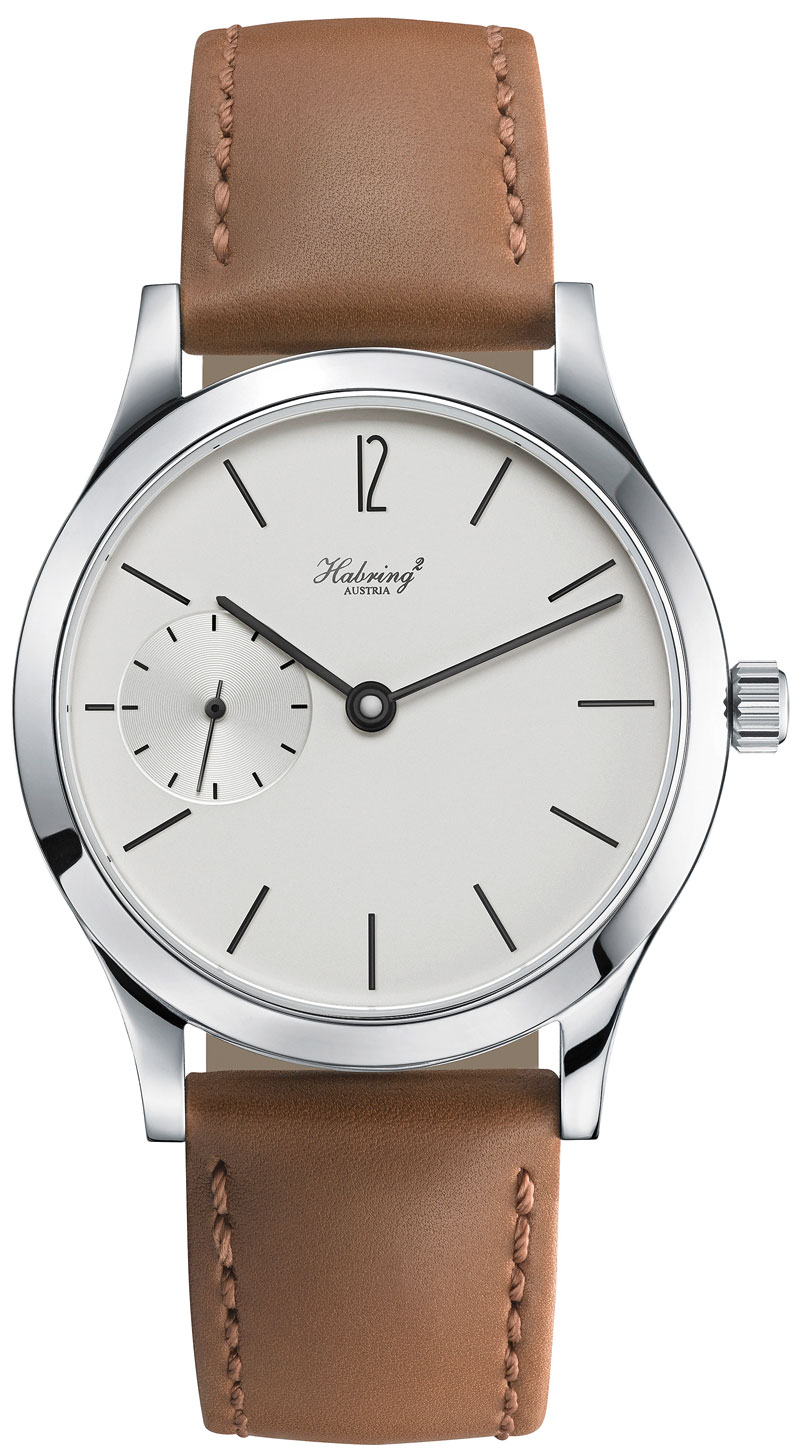 Oh… and there will be another novelty: “Felix Gold” edition. No, it won’t come in a gold case, however it will contain a Philharmonic coin whose weight of 31.103 g and 24 carat corresponds exactly to the weight of its case in gold. This makes the “Felix Gold” the first “gold watch” with real investment value, especially as the coin is billed at its current value on the day of purchase and can be sold at any time without reducing Felix’ practical value. In a best case scenario Felix would therefore generate the cost of its maintenance through the increase in the value of gold forecast for the long term. Isn’t that just cool?
Oh… and there will be another novelty: “Felix Gold” edition. No, it won’t come in a gold case, however it will contain a Philharmonic coin whose weight of 31.103 g and 24 carat corresponds exactly to the weight of its case in gold. This makes the “Felix Gold” the first “gold watch” with real investment value, especially as the coin is billed at its current value on the day of purchase and can be sold at any time without reducing Felix’ practical value. In a best case scenario Felix would therefore generate the cost of its maintenance through the increase in the value of gold forecast for the long term. Isn’t that just cool?
Concluding: a beautiful and stylish dress watch, made by hand in the Austrian Alps, with many local “ingredients”, and that for a price of just € 4,450 Euro. If you have been looking for a classic and classy dress watch, if you have been looking for an important timepiece, if you have been looking for a watch that is hand-made by a small independent manufacture… look no further because this is a superb deal!
Contact Maria and Richard Habring² via their website: www.habring2.com
Habring² Felix technical details
Specifications manufacture movement Habring² A11B:
- Hand-wound with 48 hours power reserve
- 28.800 vibrations per hour (4Hz) – tangential screw fine adjustment – anti-magnetic escapement with a Carl Haas hairspring in chronometer quality – KIF shock protection pursuant to DIN and NIHS
- 99 individual parts (50 service-relevant components) – 18 rubies
- Elaborately refined by hand with polished edges, decorative engravings, perlage, etc.
Case:
- Three-part case – stainless steel from the Corinthian mountains – diameter of 38.5 mm diameter and 7 mm in height – waterproof to 30 metres – double sealed crown
- Spherical sapphire crystal – sapphire crystal caseback
- Consecutive engraved serial number between the lugs at 6 o’clock

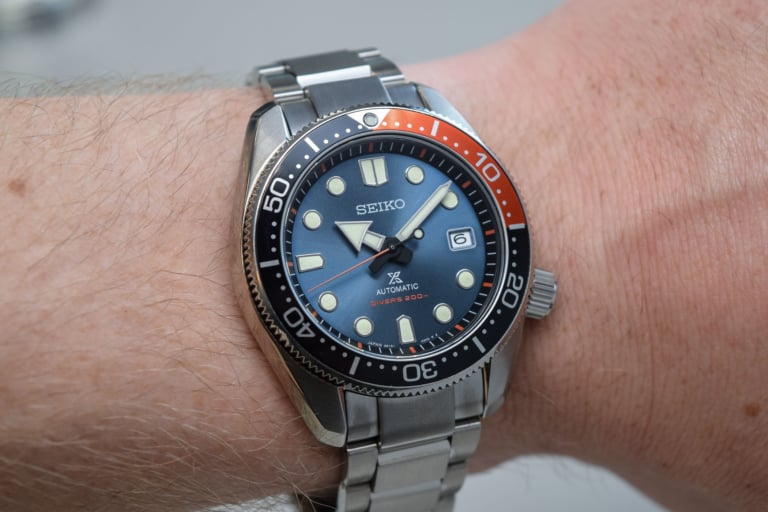
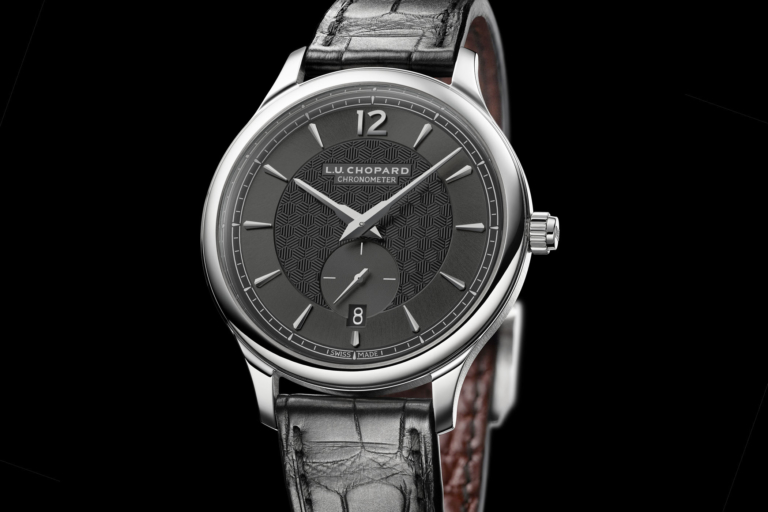
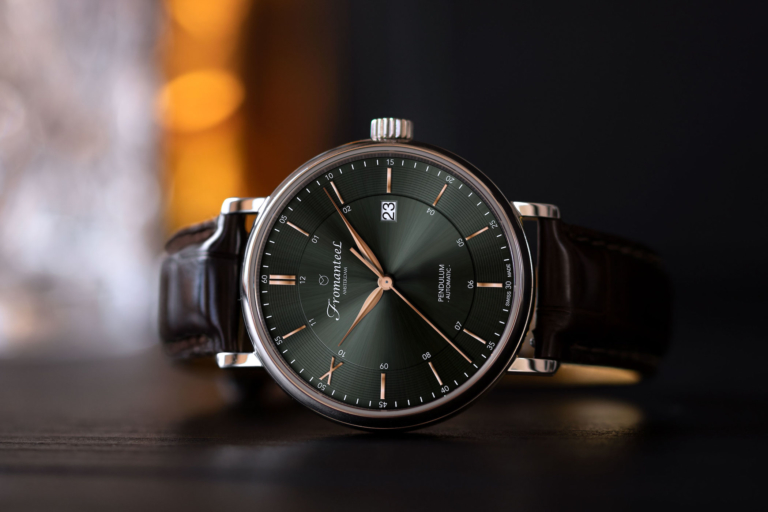
6 responses
Hello.
I mean no dis-respect but as a watchmaker that really cares about the watchmaking industry and how the marketing can really be deceiving, I think you are degrading the word “hand made” by calling this CNC-made watch, which has also several components either directly taken from ETA 7750 or copied, “hand made”. Sure, some parts are probably hand finished like the 3/4 bridge, and sure, the wheels are riveted by hand. But that does NOT make this watch “hand made” just because some human hands touched it here and there. It takes a bit more than that.
George Daniels and Roger W. Smith watches can be considered hand made since they are made by manually controlled machines, component by component, one by one, by actual watchmakers and then hand finished. But then price is also a bit different … not four figures. Please people, don’t be fooled!
It’s a pretty sweet movement and beautiful watch, but just don’t call it hand made and entirely developed in Austria because it’s untrue.
I do believe that Monochrome readers do know quite a bit about the watch industry, Robert. We’ve always explained to our readers what “hand-made” is, like we did now. Since not everyone can afford a Roger Smith (or wait for one), Habring’s offering is very impressive. And what makes it more impressive is that many of the steps, like cutting the hair spring, inserting pallets in the anchor, polished bridge edges, decorative engravings, perlage, are all done manually at Habring, while most manufactures do this automated.
Totally agree with Robert. Just playing with words.
Nice watch, but no more.
Frank, thank you for your reply.
You wrote in your comment to me: “We’ve always explained to our readers what “hand-made” is, like we did now.” That’s simply not true. Lets take a look at the article … There you wrote:
“Another impressive factor is that many parts of Habring²’s new movement are manufactured, in the very meaning of the word. Manu-factured, meaning made by hand. The wheels and pinions in calibre A11 are joined by a staking tool. Done by hand. Jewels are set by hand. The pallet are set in the anchor, and adjusted, by hand. The length of the balance spring is cut by hand, and the timing of the proprietary balance wheel is also adjusted by hand.”
For me, this sounds not at all HAND MADE, more hand adjusted, which it is. How were the wheels made, the pallet fork (anchor), the balance and the rest of the components? By an automated machine yes? How come adjustments are all of a sudden considered “hand made”? What did I miss? This is for sure hand finished movement, at least partially, so I can agree with that statement, but I will never agree with this movement being “hand made”.
You also wrote in your article, “… it is entirely developed in Austria!” That is also untrue. I’m a watchmaker and I have seen ETA 7750 enough times during my career to recognize the components when I see them.
You as a watch blogger/journalist have a certain responsibility to educate your readers. You mentioned that they know quite a bit about the industry, I don’t doubt that, but where do they get their knowledge from? From watch magazines and watch blogs where “experts” are writing about watches and they usually don’t have the necessary technical knowledge to write about watches so if there is something not entirely true, they might 1) not spot it or 2) don’t care. Option number 1 explains itself. Lets take a look at option number 2. These experts need to be diplomatic so not to ask any difficult questions or be negative towards the watches they are reviewing, otherwise they can say goodbye to advertisements or even be sued. Therefore, watch journalists can never really speak their mind since they depend on the support of the brands they are writing about and because of that reason, and I might add since they are also not trained watchmakers, not in the best position to educate readers about watches and the industry.
However, I agree with you that what Habring is offering and at this price, is pretty impressive. The company is becoming more independent and I like that direction.
Dear Robert
Thank you very much for your critic even though we have the feeling that Frank is the wrong adressee for it! We are used to discuss with our customers as well as many friends in and outside the watch industry and will not exclude you. So let me know the points you seriously doubt and I will explain, And I can ensure you that our “manu facta” comes more from “hand made” than in the average swiss watch industry when using “manufacture”. And with all necessery respect: You should know that ETA does not sell any movements anymore as well as components for it to third parties outside SG. So how should the parts be “taken from a 7750”? I understand if you request a “hand made” watch as one where all parts are really made by hand or at least made by conventionally machines directed by hands. But then you should also expect under “swiss made” a watch where 100% of the parts are from swiss origin. Please feel warmly invited to visit us and let me promise you: If you find the CNC-machine here you will get a Felix for free! 😉
best regards
Richard Habring
How many price is this watch